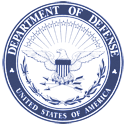Incorporated
Policy changes from this SAMM E-Change memo have been incorporated into the SAMM.
 | DEFENSE SECURITY COOPERATION AGENCY | 7/16/2021 |
MEMORANDUM FOR :
DEPUTY UNDER SECRETARY OF THE AIR FORCE FOR INTERNATIONAL AFFAIRS
DEPUTY ASSISTANT SECRETARY OF THE ARMY FOR DEFENSE EXPORTS AND COOPERATION
DEPUTY ASSISTANT SECRETARY OF THE NAVY FOR INTERNATIONAL PROGRAMS
DIRECTOR, DEFENSE CONTRACT MANAGEMENT AGENCY
DIRECTOR DEFENSE FINANCE AND ACCOUNTING SERVICE, SECURITY COOPERATION ACCOUNTING
DIRECTOR, DEFENSE LOGISTICS AGENCY
DIRECTOR, DEFENSE THREAT REDUCTION AGENCY
DIRECTOR, MISSILE DEFENSE AGENCY
DIRECTOR, NATIONAL GEOSPATIAL-INTELLIGENCE AGENCY
DIRECTOR OF CYBERSECURITY DIRECTORATE AND DEPUTY NATIONAL MANAGER FOR NATIONAL SECURITY SYSTEMS, NATIONAL SECURITY AGENCY
SUBJECT :
Prohibitions on Certain Third-Party Funds, Defense Security Cooperation Agency Policy Memo 21-42, [E-SAMM 530]
REFERENCE :
- International Traffic in Arms Regulation, Sections 120.1(c)(2), 126.1(d)(1), 126.1(d)(2), and 126.7(a)
This memorandum updates the Security Assistance Management Manual (SAMM), Chapter 9 as detailed in the attachment to clarify and further define policy related to prohibitions on certain third-party funds as outlined in the reference. These changes are effective immediately and will be included in the online version of the SAMM at http://samm.dsca.mil. Implementing Agencies should disseminate this policy to supporting activities.
This SAMM change specifically adds language further defining third-party funds; clarifies that there are prohibited sources for third-party funds; advises where to find a list of certain sources in the International Traffic in Arms Regulation (ITAR); advises that using a prohibited funding source may delay or stop progress of a Foreign Military Sale (FMS) case; and informs FMS Partners how to seek clarification on U.S. policy regarding third-party funds.
All third-party funds in support of a Letter of Offer and Acceptance (LOA) are subject to the prohibitions outlined in the reference and are subject to all laws and policies related to FMS. Third-party funds are defined as funds originating from a source other than USG or the FMS partner's own national funds. This may include FMS payments to the USG made by the FMS partner, or on the FMS partner's behalf, when the original source of funds is a third country or a non-government entity. Examples may include donations or loan type arrangements. A non-government entity includes, but is not limited to, international lenders and defense vendors.
For example, if an FMS partner seeks to obtain a loan from another country or private lender, the terms and conditions of the loan must comply with all existing USG laws and regulations related to all end items and services provided under the sale. Accordingly, all notes and Standard Terms and Conditions of the LOA remain in effect and may not be changed as a result of such a third-party arrangement. Third-party funders or financiers do not have access to the materiel or services under an LOA unless the Department of State approves the arrangement in advance.
The Department of State, Bureau of Political-Military Affairs, Office of Regional Security and Arms Transfer (PM/RSAT), as the authority, determines whether any third-party payment for FMS is in the U.S. Government's national interest and will adjudicate any documented ITAR violations. FMS partner inquiries on the matter of third-party funds usage should be routed through the Security Cooperation Organization to the appropriate DSCA Financial Policy and Regional Execution team, which will coordinate a formal response with the Department of State, PM/RSAT, as required.
If you have questions or would like additional information regarding this policy, please contact Ms. Danielle Ayers, OBO/FPRE/FP, mary.d.ayers2.civ@mail.mil, (703) 697-9407.
Heidi H. Grant
Director
ATTACHMENT :
As stated
Attachment 1
Security Assistance Management Manual (SAMM), E-Change 350
Updates to C9.7.1. National Funds
1) Update C9.7.1. to the following:
C9.7.1. National Funds. FMS partners are encouraged to use national funds (cash) for Security Assistance (SA) payments. If an FMS partner uses third-party funds, such as donations or private financing (without U.S. Government (USG) guarantee) for an FMS payment, then the USG will treat those funds as national funds.
2) Add C9.7.1.1. and C9.7.1.1.1. as a new subsections:
C9.7.1.1. Private or Third-Party (i.e. non-USG) Funds. Potential FMS partners who use third-party funds, which may include third-party financing or donations, must understand that any third-party entity does not have access or rights to materiel or services provided under the LOA without advance approval of the Department of State. Third-party funds or financing are any funds provided to the USG as payment for an FMS purchase where the source of those funds originate from a source other than the FMS partner's national funds. This may include, but is not limited to, donations or loans from another country, payments from commercial companies or loans from an international lender. Restricted sources include, but are not limited to, the countries identified within the International Traffic in Arms Regulation (ITAR) sections 120.1(c)(2), 126.1, and 126.7(a).
C9.7.1.1.1. Attempts to use, or actual use of, a restricted source may raise concerns, impede, or stop the progression of a FMS sale. Additionally, the Department of States will adjudicate documented ITAR violations. FMS partners needing clarification on third-party fund sources should direct inquiries to the cognizant Security Cooperation Organization, which will forward such inquiries to DSCA Financial Policy and Regional Execution (FPRE), for response, as appropriate. DSCA FPRE will coordinate inquiries with the Department of State, Bureau of Political Military, Office of Regional Security and Arms Transfer (PM/RSAT), as needed. Department of State PM/RSAT is the decision authority on whether a third-party funds arrangement raises concern with U.S. law or policy and what remedies would be required for the FMS sale to be completed.
